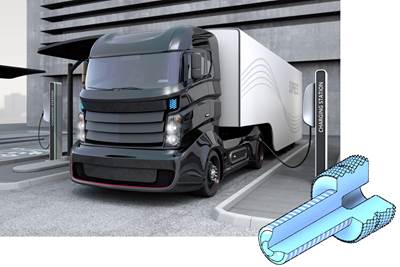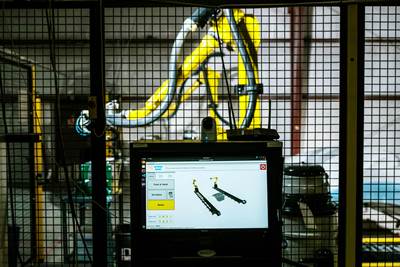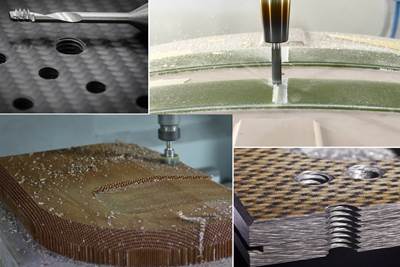Finishing & Fastening
MM-Welding solution automates, functionalizes composite joining
Ultrasonic joining has been used for decades, but is now being advanced to enable smart, automated fastening in composites and multi-material assemblies.
WatchDeveloping milling for CMC because grinding takes too long
Economical processes that can cut machining time by 70% are being tested on aeroengine turbine blade demonstrators by Hufschmied and DLR in the SCANCUT project.
Read MoreNovel insert technology enables arc stud welding with composites
FAUSST technology enables fast, reliably welded connection of metal components in composite structures.
Read MoreExploring powder coating for composites
Advancements in powder coating technology make it a viable surface finish for a growing number of composite applications.
Read More“Structured air” TPS safeguards composite structures
Powered by an 85% air/15% pure polyimide aerogel, Blueshift’s novel material system protects structures during transient thermal events from -200°C to beyond 2400°C for rockets, battery boxes and more.
Read MoreFiberJoints innovates composite bolted joints for reduced weight, cost and maintenance
Novel reinforcing patch uses braided sleeve to boost the load-carrying capacity of composite bolted joints.
Read MoreCreating a composite battery insert-stud solution for EV trucks
Bossard worked with an OEM and Tier supplier team to meet tight electrical insulation and packaging tolerances while reducing tooling, molding and assembly costs.
Read MoreAI-powered robotic solutions support high-mix manufacturing
AI startup offers automation innovations for high-mix, high-variability, manual surface finishing applications.
Read MoreOptimizing machining for composites: Tool designs, processes and Industry 4.0 systems
Hufschmied moves beyond optimized milling and drilling tools to develop SonicShark inline quality control system and Cutting Edge World cloud platform for optimized tool use and processes.
WatchSolar-powered photonic cooling enables energy-saving coating
Passive cooling technology can reduce interior temperatures 5-13°C, offering weight, cost and CO2 benefits for cars, construction, aircraft and more.
Read More

















